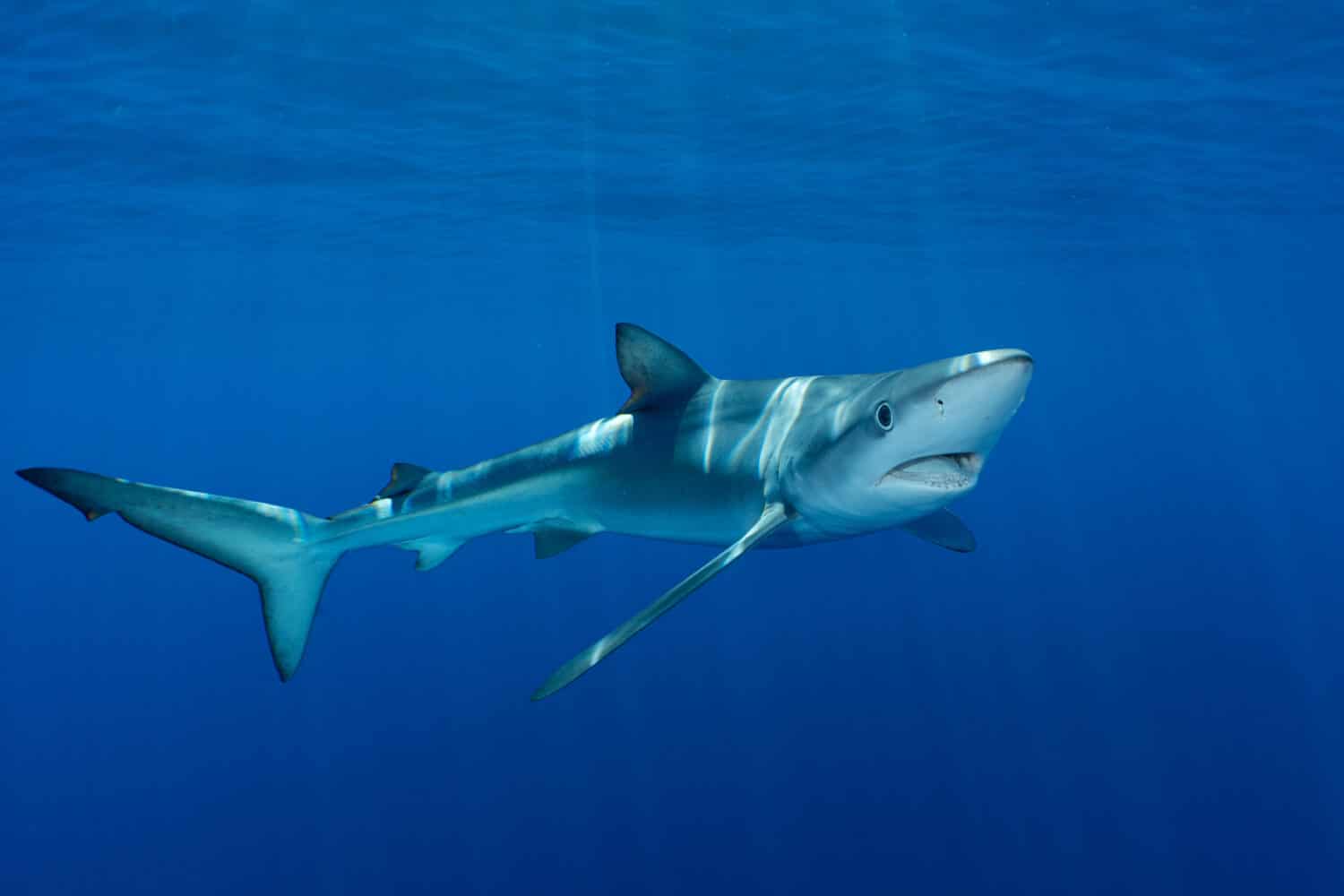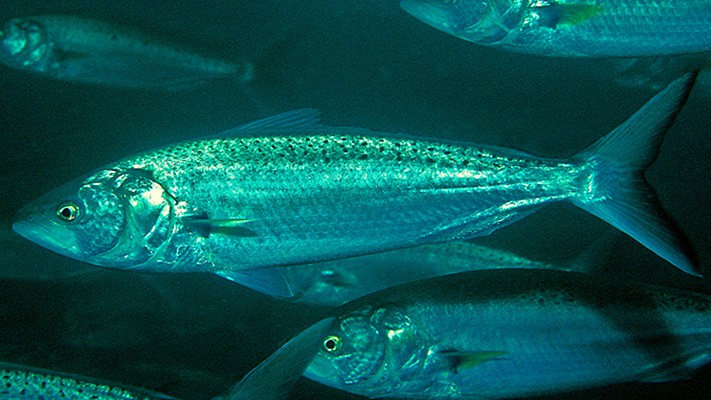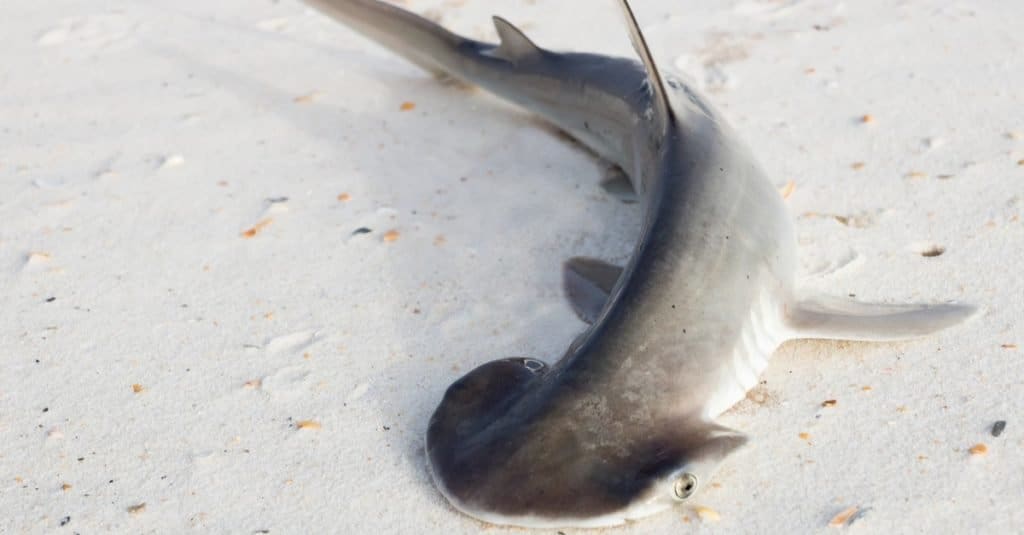Continue reading for our analysis...

We’ve all done it! Got carried away with what we were doing and then found ourselves a long way from where we were supposed to be. This hunt for fish nearly ended in disaster for a blue shark that managed to get itself stranded on a beach in Palliser Bay, South Wairarapa, New Zealand. It had been chasing kahawai fish and had misjudged the water depth and tides. As the video above shows, it needed a little help from human friends to make it back to the deeper water.
Where Do Blue Sharks Normally Live?

Blue sharks often get caught up in fishing gear.
©Tara Lambourne/Shutterstock.com
The blue shark (Prionace glauca) lives in temperate and tropical oceans although it prefers slightly cooler waters. It normally lives quite near the surface but will dive down to the cooler waters if the surface is too hot. These guys do not normally spend their time near the coast, they prefer to be in open water. Blue sharks are also migratory (including making trans-Atlantic crossings) and use the ocean currents to travel long distances. In terms of size, they reach a maximum of about 10 feet.
Their populations are fairly steady even though many are caught each year both on purpose and by accident. Humans use them to make shark fin soup, leather, and fish food.
What Do Blue Sharks Normally Eat?

The blue shark in the video footage was supposedly chasing Kahawai fish, pictured above.
Blue sharks are carnivores and are open ocean predators. The video notes claim that the individual shark in this clip had been chasing Kahawai when it got stranded. These are Arripis trutta which are found all around New Zealand. They live in large schools and are most often found in coastal waters, in harbors and estuaries, and even in salty river waters.
Blue sharks eat several types of fish as well as squid and they sometimes even eat seals. Some individuals have been spotted feeding on whale and porpoise carcasses. Their favorite fish are pelagic fish including herring, white hake, and cod. When humans catch these fish on long lines, they often attract and are eaten by blue sharks. However, the sharks also get ensnared in the fishing gear and this is how many of them die.
Is It Normal for a Shark to Get Beached?

A
bonnethead shark
or shovelhead, Sphyrna tiburo, is stranded on a sandy beach.
©IrinaK/Shutterstock.com
Though not a common occurrence, sharks do get stranded on beaches occasionally while pursuing prey. Though they are intelligent and usually avoid these predicaments, a miscalculation can result in getting stuck in shallow waters.
Other reasons sharks may get stranded on beaches include strong currents, the changing of tides, or even sudden shifts in water temperatures which can disorient sharks, leading them to venture into shallow waters accidentally. Some shark species actually prefer shallow waters for feeding or even for breeding, where the risk is greater they’ll get beached.
An injured or ill shark could be washed ashore, having lost its normally strong navigational skills. Human activity can also drive sharks toward shorelines in the form of boat traffic, water pollution, and habitat destruction.
Thank you for reading! Have some feedback for us? Contact the AZ Animals editorial team.







